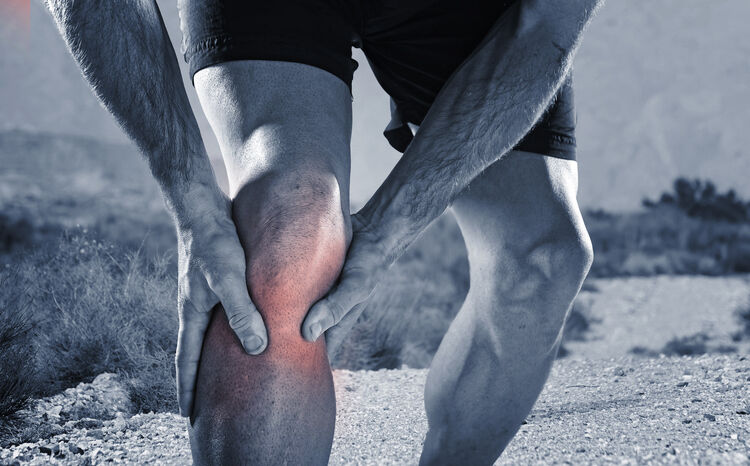
Testosterone Replacement Therapy and Blood Clots
Testosterone Replacement Therapy has proven incredibly valuable, but it is not without risk. The connection between TRT and blood clots is something to consider before starting treatment.

Blood clots can happen to anyone. But did you know that those in peak physical condition, like athletes, may have an increased risk of developing a clot?
It’s common to think that athletes, with their vigorous workout schedules and healthy diets, can avoid health problems that non-athletes experience, such as blood clots. When tennis champion Serena Williams and NBA star Chris Bosh shared their experiences dealing with deep vein thrombosis (DVT) a few years ago, the sports world was shocked. DVT is a blood clot that first develops in the leg. So, if exercise can’t prevent blood clots, what can?
You may be surprised to learn athletes have a greater chance of developing DVT due to their lifestyle, among other factors. A 2017 study found athletes competing in four US professional sports leagues experienced 55 blood clotting incidences between 1999 and 2016.
DVT can affect anyone, including those who regularly participate in vigorous workouts. DVT becomes life-threatening when the clot in the leg breaks away and lodges in the lungs. This sudden blockage is also known as a pulmonary embolism (PE). The good news is that you can prevent a clot by understanding the risks and signs of DVT.
Blood clots can develop due to a clotting disorder, congenital abnormality, and varicose veins. However, athletes stand a greater chance of developing blood clots because of their lifestyle, such as:
Long Travel. Traveling long distances means sitting for long periods, which can cause blood to pool in the leg veins. When blood stagnates, the risk of a blood clot rises. A study of Boston Marathon participants revealed those who flew cross-country had elevated levels of clotting activity versus those who drove a short distance to the event.
Injuries/Intense Workouts. Inactivity after trauma prevents blood from flowing smoothly in the leg veins. An injury, or even intense workouts, can damage delicate blood vessel walls, leading to clot-causing inflammation.
Dehydration. Even when not competing in extreme heat, athletes can suffer dehydration. When you're dehydrated, you lose blood volume, causing blood to thicken and raising the risk of clots.
Don’t mistake a clot for a muscle pull or the aches of an energetic workout! DVT and PE have specific symptoms that should not be ignored. Know how to identify these signs so you can take action before it’s too late.
DVT Symptoms
Pain and/or swelling in the leg
A warm, tender feeling to the touch
Reddish colored skin
PE Symptoms:
Shortness of breath
Rapid heartbeat
Feeling faint
Sudden sharp chest pain
Bloody cough
DVT and PE symptoms demand immediate medical attention. If you think you’re suffering from PE, go to the emergency room for treatment.
Preventing blood clots starts with knowing your risk factors. If you have a family history of blood clots or have had one in the past, you can work with your doctor on a treatment plan that will most likely include taking blood thinners.
Before you hit the playing field or running trail, take 30 minutes to stretch and warm up your muscles thoroughly. Drink plenty of water to stay hydrated and keep blood flowing. On long plane rides, flex your ankles or stroll around the aisle every so often (and when it’s safe to do so). Many athletes wear compression stockings when competing to promote healthy blood flow. And most importantly, don’t ignore your body. If you’re experiencing any unusual pain that doesn’t go away, get it checked by a doctor as soon as possible.
Center for Vein Restoration has three locations in the Phoenix, Arizona, area led by two board-certified physicians. Nick Morrison, MD, FACS, FACPh, has been a general surgeon in the Phoenix area for 42 years and is board-certified by the American Board of Surgery and the American Board of Venous and Lymphatic Medicine.
Jeffrey Alpern, DO, is a board-certified cardiovascular and thoracic surgeon with more than 40 years of medical experience. With their extensive qualifications, both doctors can thoroughly discuss and create tailored plans to treat your vein disorder, including varicose veins and blood clots. Contact them today for a consultation.
3509 S. Mercy Road
Suite 101
Gilbert, AZ 85297
1500 S. Dobson Road
Suite 310
Mesa, AZ 85202
9515 W. Camelback Road
Suite 108
Phoenix, AZ 85037